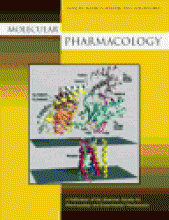Abstract
Polyanionic dendrimers were synthesized and evaluated for their antiviral effects. Phenyldicarboxylic acid (BRI6195) and naphthyldisulfonic acid (BRI2923) dendrimers were found to inhibit the replication of human immunodeficiency virus type 1 (HIV-1; strain IIIB) in MT-4 cells at a EC50 of 0.1 and 0.3 μg/ml, respectively. The dendrimers were not toxic to MT-4 cells up to the highest concentrations tested (250 μg/ml). These compounds were also effective against various other HIV-1 strains, including clinical isolates, HIV-2 strains, simian immunodeficiency virus (SIV, strain MAC251), and HIV-1 strains that were resistant to reverse transcriptase inhibitors. HIV strains containing mutations in the envelope glycoprotein gp120 (engendering resistance to known adsorption inhibitors) displayed reduced sensitivity to the dendrimers. The compounds inhibited the binding of wild-type virus and recombinant virus (containing wild-type gp120) to MT-4 cells at concentrations comparable to those that inhibited the replication of HIV-1(IIIB) in these cells. Cellular uptake studies indicated that BRI2923, but not BRI6195, permeates into MT-4 and CEM cells. Accordingly, the naphtyldisulfonic acid dendrimer (BRI2923) proved able to inhibit later steps of the replication cycle of HIV, i.e., reverse transcriptase and integrase. NL4.3 strains resistant to BRI2923 were selected after passage of the virus in the presence of increasing concentrations of BRI2923. The virus mutants showed 15-fold reduced sensitivity to BRI2923 and cross-resistance to known adsorption inhibitors. However, these virus mutants were not cross-resistant to reverse transcriptase inhibitors or protease inhibitors. We identified several mutations in the envelope glycoprotein gp120 gene (i.e., V2, V3, and C3, V4, and C4 regions) of the BRI2923-resistant NL4.3 strains that were not present in the wild-type NL4.3 strain, whereas no mutations were found in the reverse transcriptase or integrase genes.
Footnotes
- Received March 21, 2000.
- Accepted July 28, 2000.
-
Send reprint requests to: Myriam Witvrouw, Rega Institute for Medical Research, Katholieke Universiteit Leuven, Minderbroedersstraat 10, B-3000 Leuven, Belgium. E-mail:Myriam.Witvrouw{at}uz.kuleuven.ac.be
-
These investigations were supported by the Biomedical Research Program (BMH4-CT95-1634) of the European Commission and the Belgian Geconcerteerde Onderzoeksacties (GOA95/5, Vlaamse Gemeenschap).
- The American Society for Pharmacology and Experimental Therapeutics
MolPharm articles become freely available 12 months after publication, and remain freely available for 5 years.Non-open access articles that fall outside this five year window are available only to institutional subscribers and current ASPET members, or through the article purchase feature at the bottom of the page.
|






